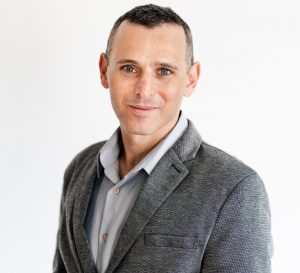פרופ' רואי אדמון – Roee Admon

Email: radmon@psy.haifa.ac.il
Affiliation Faculty / Department: Faculty of social sciences, Department of psychology, The Integrated Brain and Behavior Research Center
Academic Background: Roee Admon is a Senior Lecturer at the Department of Psychology, University of Haifa. His research focuses on the characterization of the neurobiological mechanisms that underlay stress vulnerability and resiliency in humans. In his PhD thesis Dr. Admon conducted a prospective neuroimaging study that followed a large sample of healthy soldiers in the Israeli Defense Forces (IDF) before, during, and after exposure to real-life stress in the form of military combat. By that, he was the first to relate individual levels of psychopathology following the stressful military service to both predisposing and acquired elements in the brain’s structure and function. Throughout his post-doctoral training at McLean Hospital & Harvard Medical School Dr. Admon continued to investigate the neural mechanisms mediating stress vulnerability, with a focus on reward dysfunction as a critical factor in stress-related psychopathology. In October 2016 Dr. Admon accepted a position of senior lecturer at the Department of Psychology, University of Haifa and established an independent research laboratory. Research in his lab focuses on the identification of neuro-psycho-pharmacological mechanisms that can be manipulated to normalize neural function in stress-related psychopathologies including depression and anxiety. His studies integrate behavioral, psychological, physiological, endocrinological and neural (brain function and structure) measures of stress response among healthy as well as psychopathological populations. Dr. Admon has already received numerus awards and recognitions, including the prestigious Alon Scholarship from the Israeli Council for Higher Education, two Brain & Behavior Research Foundation (Formerly NARSAD) Young Investigator Awards, the Anxiety Depression Association of America (ADAA) Career Development Leadership Award, and many more. He has also published more than 25 papers on the topic of the neural correlates of trauma and stress in humans, many of which in top journals including American Journal of Psychiatry, Tends in Cognitive Sciences, Nature Communication and more.
Research Interests: In a world with ever growing levels of stress an increasing number of individuals succumb to stress-related psychopathologies, including depression and anxiety. Current diagnoses and treatment for these patients is still solely based on their self-reported symptomatic descriptions thus hindering the implementation of early or even preventive treatments. This shortcoming is particularly misfortune among stress-related psychopathology considering that treatment administration at close proximity to the stressful event may achieve improved therapeutic efficacy. Accordingly, the overarching goal of our research is to characterize the neurobiological mechanisms that underlay stress vulnerability and resiliency in humans. For that, studies in our lab integrate behavioral, psychological, physiological, endocrinological and neural (brain function and structure) measures of stress response among healthy as well as psychopathological populations. It is my hope that insights from our work could translate to clinical care via the identification of biomarkers for early diagnosis of stress-related psychopathology as well as targets for novel stress-resiliency enhancement procedures.
Home Page URL: www.hevra.haifa.ac.il/stress-psychopathology
